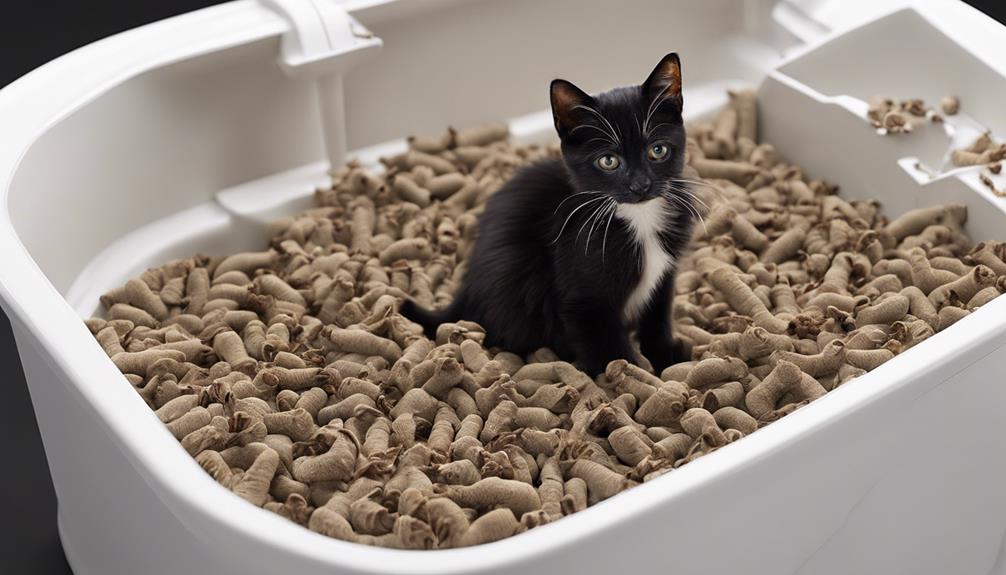Navigating the vast ocean of parenting advice, caring for a newborn can feel like embarking on a journey into unknown territory. Understanding the intricacies of swaddling, identifying hunger cues, and establishing a sleep routine can be both overwhelming and incredibly rewarding.
But fear not, as this guide serves as your compass through these uncharted waters, offering practical insights and expert advice to help you sail confidently through the early days of parenthood.
So, are you ready to equip yourself with the essential tools to set sail on this incredible journey of caring for your newest family member?
Key Takeaways
- Breastfeeding every 2-3 hours provides vital nutrients and antibodies for newborn growth.
- Diaper changes 10 times daily maintain skin health and prevent irritation.
- Skin-to-skin contact, swaddling, and soothing sounds aid in newborn relaxation.
- Proper umbilical cord and circumcision care ensure your baby's well-being and health.

Momcozy Muslin Swaddle Blankets for Baby Boys and Girls, 4-Pack Breathable and Skin-Friendly Receiving Blanket Wrap, Baby Essentials, Registry & Gift, 47 x 47 inches
【Soft Silky and Breathable】Momcozy baby swaddle receiving blanket is made of cotton and other natural material, which is…
As an affiliate, we earn on qualifying purchases.
As an affiliate, we earn on qualifying purchases.
Feeding Your Newborn
When caring for your newborn, feeding them breast milk provides essential nutrients and antibodies important for their growth and development. Newborns need to feed every 2-3 hours to make sure they receive the necessary nourishment for their tiny bodies.
Proper latching is vital during breastfeeding to make sure your baby gets enough milk and to prevent any discomfort for both of you. It's important to burp your baby after feedings to release any swallowed air, reducing the chances of fussiness.
If you encounter any difficulties with feeding, don't hesitate to seek guidance from a healthcare provider who can offer support and solutions. Additionally, engaging in skin-to-skin contact while feeding can promote bonding and comfort for your little one.
Make sure to create a cozy environment during feeding times, allowing you and your newborn to connect in a serene and loving manner.

Boppy Nursing Pillow – Firm, Ergonomic U-Shaped Bottle and Breastfeeding Pillow with High Lift for Comfort and Support, Spacious Surface – Pink Garden Flowers
#1 SELLING: Boppy is the number 1 selling brand of nursing ppillows, based on prior calendar year nursing…
As an affiliate, we earn on qualifying purchases.
As an affiliate, we earn on qualifying purchases.
Diaper Changing Basics
To ensure the baby's comfort and hygiene, mastering the basics of diaper changing is essential for caregivers. Here are some key points to keep in mind:
- Frequent Changes: Newborns typically require around 10 diaper changes daily to uphold hygiene and prevent diaper rash. Keeping the baby dry and clean is vital for their skin health.
- Proper Technique: During diaper changes, wipe gently from front to back to prevent infections. This practice helps in avoiding the spread of bacteria and reduces the risk of urinary tract infections.
- Diaper Cream Application: It's important to apply diaper cream as needed to safeguard the baby's delicate skin from irritation and potential diaper rash. Choosing a cream with protective properties can help maintain the skin's natural barrier and prevent discomfort.

Desitin Maximum Strength Baby Diaper Rash Cream, 40% Zinc Oxide, Hypoallergenic No Added Parabens & Dyes, Protects & Relieves Baby’s Skin for Up to 12 Hours, Prevents Diaper Rash, 4.8 oz Tube
Maximum Strength Diaper Rash Cream: Desitin diaper cream contains 40% zinc oxide to treat and prevent diaper rash…
As an affiliate, we earn on qualifying purchases.
As an affiliate, we earn on qualifying purchases.
Soothing Techniques for Babies
Engaging in skin-to-skin contact with your baby can help regulate their body temperature and heart rate, fostering a sense of security and comfort. This intimate connection not only provides physical warmth but also a soothing presence that helps calm your baby. Additionally, gentle rocking or swaying motions can mimic the comforting environment of the womb, aiding in calming your little one. Vocal sounds like shushing or soft humming can recreate familiar sounds from the womb, further assisting in relaxation.
Swaddling is another effective technique for soothing babies. Wrapping your baby snugly in a blanket can create a cozy, womb-like environment that promotes a sense of security and prevents them from startling themselves awake. Furthermore, offering a pacifier can satisfy your baby's natural sucking instinct, encouraging self-soothing and aiding in relaxation. By incorporating these soothing techniques into your routine, you can help your baby feel calm, secure, and content.
![Portable Baby Sound Machine [White Noise for Babies Kids Adults][Timer Function][12 Soothing Sounds][Sleep Boombox] 15 Hours Battery Life, Travel,Registry,Gifts,Shower,Clips on Baby Stroller](https://m.media-amazon.com/images/I/31ZLxiagpOL._SL500_.jpg)
Portable Baby Sound Machine [White Noise for Babies Kids Adults][Timer Function][12 Soothing Sounds][Sleep Boombox] 15 Hours Battery Life, Travel,Registry,Gifts,Shower,Clips on Baby Stroller
White noise on the go: Portable sound machine with 12 kinds of the most soothing white noise can…
As an affiliate, we earn on qualifying purchases.
As an affiliate, we earn on qualifying purchases.
Safe Sleep Practices

Implementing safe sleep practices is essential for newborns to promote their well-being and reduce the risk of Sudden Infant Death Syndrome (SIDS). When caring for your baby, ensuring a safe sleep environment is vital.
Here are some key practices to follow:
- Back to Sleep: Always lay your baby on their back to sleep. This position is safest and helps reduce the risk of SIDS.
- Room Sharing: Consider having your newborn share your room (but not your bed) for the first 6 months to 1 year. This practice promotes safe sleep and allows for easier nighttime care.
- Head Positioning: Remember to rotate your baby's head position during sleep to prevent flat spots on their skull. This simple step can contribute to your baby's comfort and development.
Umbilical Cord and Circumcision Care
Maintaining proper care for the umbilical cord stump is important in preventing infection and ensuring a healthy healing process for your newborn. To prevent infection, keep the stump clean and dry, avoiding submerging it in water until it naturally falls off, typically within 1 to 3 weeks after birth.
Watch for signs of infection like redness, swelling, or a foul odor around the stump. When it comes to circumcision care, follow the specific instructions provided by your healthcare provider for best healing. Each baby is unique, so paying close attention to the healing process and consulting your healthcare provider if you notice any concerning changes is crucial.
Frequently Asked Questions
What Are the 4 Components of Essential Newborn Care?
We guarantee newborn health by concentrating on thermal care, hygienic care, early and exclusive breastfeeding, and cord care. These components help uphold body temperature, cleanliness, proper nutrition, and prevent infections, fostering a strong bond between parents and baby.
What Is the Hardest Week With a Newborn?
The first week with a newborn is often the hardest due to frequent feedings, erratic sleep patterns, overwhelming adjustments, heightened emotions, and fatigue. Establishing routines and bonding during this important time can help ease the challenges.
What Are the Eight Steps of Essential Newborn Care?
We guarantee newborns receive essential care by following eight steps: drying and placing on mother's abdomen, delayed cord clamping, skin-to-skin contact, breastfeeding initiation, eye care, vitamin K, weighing, and identification. These practices foster health and bonding.
What Are the 5 Steps of Newborn Care?
We focus on feeding, diapering, bathing, soothing, and monitoring our baby's health. Breastfeeding or formula every 2-3 hours, changing diapers frequently, bathing 2-3 times a week, using soothing techniques, and checking health regularly are priorities for us.
Conclusion
As we journey through the delicate dance of caring for our newborns, let's remember that each task, whether feeding, changing, soothing, or ensuring safe sleep, is a thread in the tapestry of our bond with our little ones.
Like a gentle lullaby, these simple acts weave a tapestry of love, trust, and connection that will guide us through the beautiful journey of parenthood.
Let's cherish each moment, knowing that our care and love are the foundation of their world.









